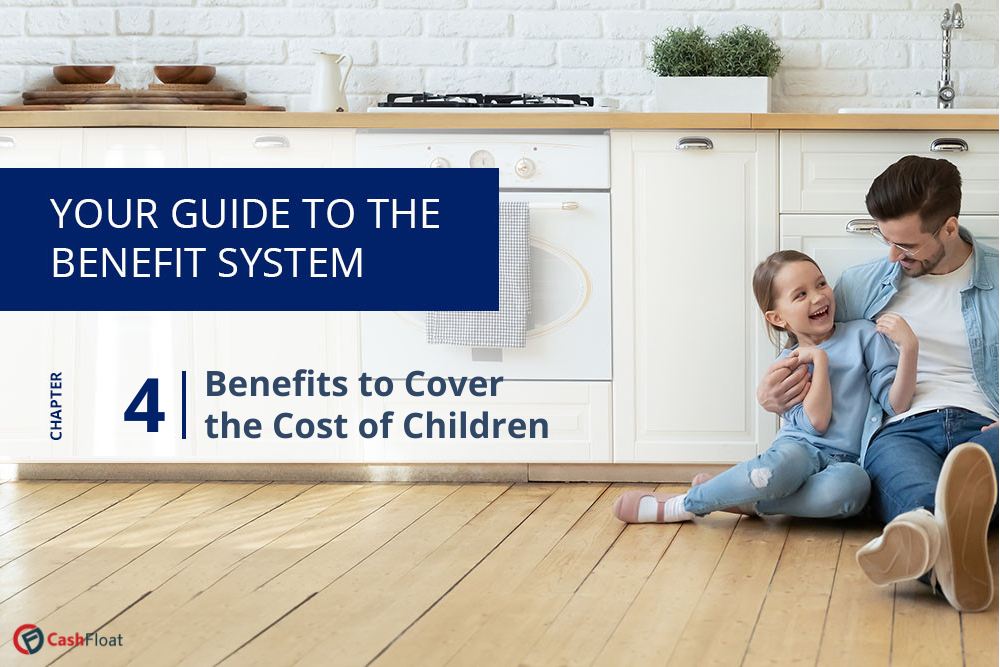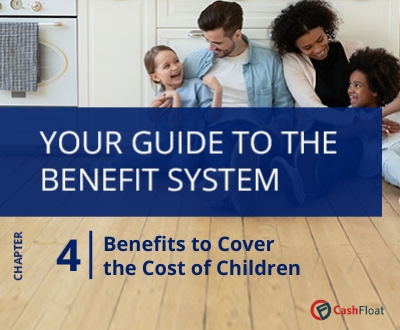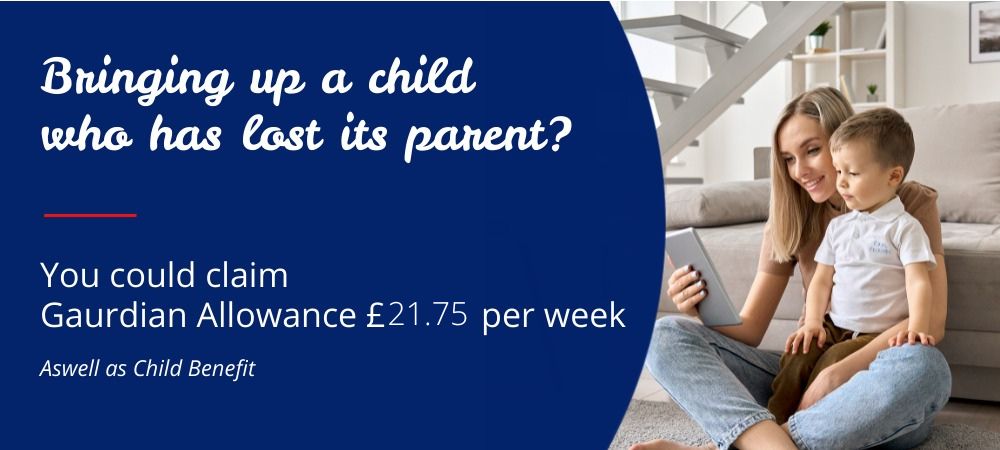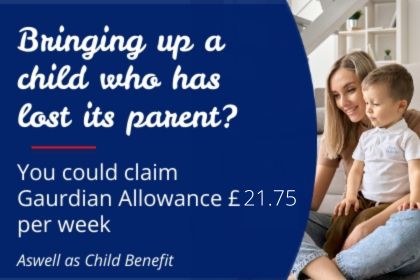Can’t get your head around all the different benefits for families with children? Here is a crystal clear up to date guide about all the benefits that you may be entitled to. Read on to find out more…


- All couples earning below £60,000 per year, with a child under 16 are entitled to the full amount of Child Benefit.
- Under Universal Credit, couples of 25+ can get extra support for their children on top of £617.60 per month.
In this chapter, we look at the help which families with children can receive from the state. Previously, the two main benefits for families with children were Child Benefits and Tax Credits. You can still claim Child Benefit as an independent benefit, but tax credits no longer exists. You have to apply for Universal Credit instead.
What is Universal Credit?
Universal Credit is the benefit which replaced Child Tax Credit, Housing Benefit, Income Support, income based Jobseeker’s Allowance, income based Employment and Support Allowance and Working Tax Credit. Rather than claimants making a claim for each of these benefits, their needs are assessed under one benefit and they receive one monthly payment under Universal Credit.
We will first look at Child Benefit, exploring who is eligible, how to make a claim and how much people can receive. After that, we will explain how Universal Credit works replacing tax credits, explaining what it is, who should make a claim and lastly what people can expect to receive under it.
Child Benefit
- Most parents are eligible for Child Benefit
- Child Benefit is paid to one parent or person who is responsible for a child under the age of 16 (or up to 20 if they are in approved education or training.)
- Child Benefit is £26.05 per week for the first child and £17.25 for each additional child.
- The government will pay the benefit into the bank account of a chosen adult every 4 weeks. The person who claims will get National Insurance credits towards their state pension if they are not working or if they earn less than £183 per week
- Child Benefit continues until the child turns 16 if they leave education or training. If they stay in approved education or training, it will continue until they are 20.
- If either you or your partner’s income is over £60,000, you will usually have to pay tax on Child Benefit that you receive. Once either you or your partner receive over £80,000, you will lose all of your Child Benefit through tax. Your combined income does not matter.
Normally child benefit is paid to the parent who is most responsible for their child/children. Usually, this is one parent who lives with them, cares for them and provides for them. However, parents who do not live with their children can claim if they pay at least the same amount towards them in providing things like pocket money, food and transport. On top of this, it can be paid to someone who has an informal arrangement to look after a friend or relative’s child if they are paying at least as much as the amount of Child Benefit to support the child.
There is no limit to the number of children that you can claim child benefit for and it can also be paid to people who foster or adopt a child. Only one person can receive Child Benefit for a given child.
| How much will you receive in Child Benefit? | |
|---|---|
| The Eldest/Only Child | £26.05 per week |
| Other Children | £17.25 per week |
| Limits on Child Benefit | 0* |
*While there is no limit to the number of children that you can claim Child Benefit for, the benefit cap may limit the total amount of benefits that you can receive.
How To Claim Child Benefit
You can now submit your claim for Child Benefit online through this link. However, you still have the option to complete a paper form and submit it via post. If you are eligible for Child Benefit, you should fill in Child Benefit Claim Form CH2 and send it to the Child Benefit Office along with the child’s original birth certificate, an adoption certificate if they are adopted and their passport if they were born overseas.
Send your claim for child benefit to:
Child Benefit Office
Washington
Newcastle-upon-Tyne NE88 1ZD
It usually takes 6-12 weeks to process a new claim for Child Benefit. Claims can be backdated for up to 12 weeks. Make sure that you apply as soon as your child is born or as soon as they come to live with you if they are moving in, so you don’t miss out on any payments.
Having a baby can be an expensive time and often people end up taking little loans online to help get them through it. Once Child Benefit payments begin, the Government will transfer the money into your bank account every four weeks, usually on a Monday or Tuesday. If you are a single parent or receiving other state benefits such as Income Support, then you can arrange to have the money paid on a weekly basis.
You stop receiving Child Benefit when your child:
- Is between 16-20, if they leave approved education or training
- Turns 20 if they stay are still in approved education or training
- Starts paid work of more than 24 hours a week
- Begins an apprenticeship (if their apprenticeship is in England)
It is possible to get an extension of Child Benefit for up to 20 weeks, if your child is 16 or 17 and leaves approved education or training, and joins the Armed Forces or registers to enter work, training or full time education with certain ‘qualifying bodies’.
It is vital that you let the Child Benefit Office know of any changes in your circumstances or your child’s. You can be fined for making fraudulent Child Benefit claims.


What is Guardian’s Allowance?
Guardian’s allowance is a benefit given to people who are raising a child whose parents have died. If you are raising a child whose parents have died and you qualify for Child Benefit for the child, then you can also apply for Guardian’s Allowance. The amount given is £22.10 per week and it is paid on top of Child Benefit. Under certain conditions, you can receive Guardian’s Allowance if the child’s parents are not dead.
Universal Credit for Parents
Here’s what you need to know about Universal Credit if you are a parent
- Universal Credit has replaced tax credits as a benefit for parents.
- You can apply for Universal Credit if you are on a low income or are out of work and if you and your partner have £16,000 or less in savings.
- Under Universal Credit you can receive financial support to help with the costs of looking after children.
- This is received on top of the standard Universal Credit amount.
- Children are normally classified as those under the age of 16 or up to the age of 20 if they are in approved education or training.
Previously, two of the main benefits available for parents were Child Tax Credits and Working Tax Credit. Under tax credits, parent’s income and needs were assessed and tax credits were awarded if they met the criteria. Universal Credit has now replaced them. With the full introduction of Universal Credit in 2018, parents who need financial help will now have to apply for Universal Credit.

Is the assessment criteria the same for Universal Benefits as it was for tax credits?
While the assessment criteria for financial support for parents is similar under Universal Benefits, it is not the same. Not everyone will receive the same amount under Universal credit as they did under tax credits.
Universal Credit to Cover the Living Costs of Children
The standard amount of Universal Credit for a couple over the age of 25 is £628.10 per month. If a couple over the age of 25 have children, they can receive extra support on top of the standard amount to cover the costs of having children. This money is to cover the daily expenses of having children and is separate to support which is available to cover childcare costs. If you also need extra support to cover childcare costs, go to Chapter 3 Part II, for information on this.
What is Available?
If you qualify for Universal Credit and you have either 1 or 2 children, then you will receive an extra amount on top of your standard Universal Credit allowance for each child.
For those that have 3 children or more, you will usually only receive extra support for more than 2 of them if they were born before 6th April 2017 and you were claiming support under Universal Credit for all of your children before that date. If that is not the case then you will usually only receive support for 2 of your children.
How much can I get?
| Number of Children and Eligibility Status | Extra Amount Received on top of Standard Universal Credit |
|---|---|
| For your first child | £339.00 (if they were born before 6 April 2017) £292.81 (if they were born on or after 6 April 2017) |
| For your second child (or any other eligible children) | £292.81 per child |
| A disabled child | £158.76 or £495.87 |
Under Universal Credit, you will either receive the higher rate of £495.87 per month or the lower rate of £158.76 per month for a disabled child. You will receive the higher rate if your child is already getting the Disability Living Allowance higher rate care component, already getting the Personal Independence Payment enhanced daily living component or is registered as blind. You will get the lower rate if your child is getting any other rate of Disability Living Allowance or Personal Independence Allowance.
Bringing up children is never cheap. In fact, the Money Charity estimates that it costs a single parent about £28.16 per day to bring up a child. Child benefit and Universal Credit was designed to help families with children to cope with the high expenses associated with child rearing.
Of course, it is sometimes easier and faster to simply apply for a small personal loan. But, like most things, the more convenient something is, the more it costs. Trying to bring up your children using just short term credit as your source of quick money uk, is a bit like doing all your shopping at the local convenience store. Very convenient, very easy, but very expensive.
So although it might be confusing, it is worth putting in the effort to claim the correct benefits. In the long run, your hard work will pay off.


